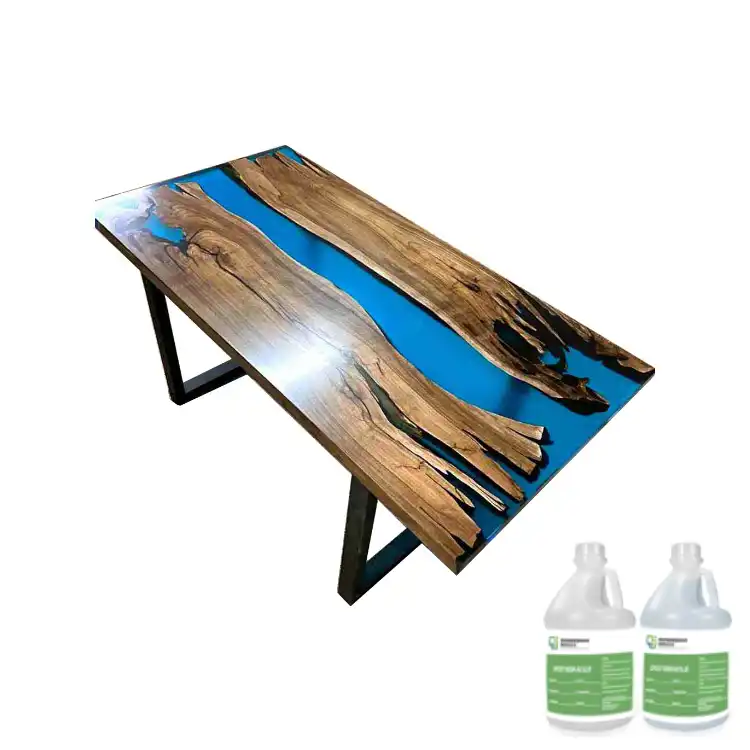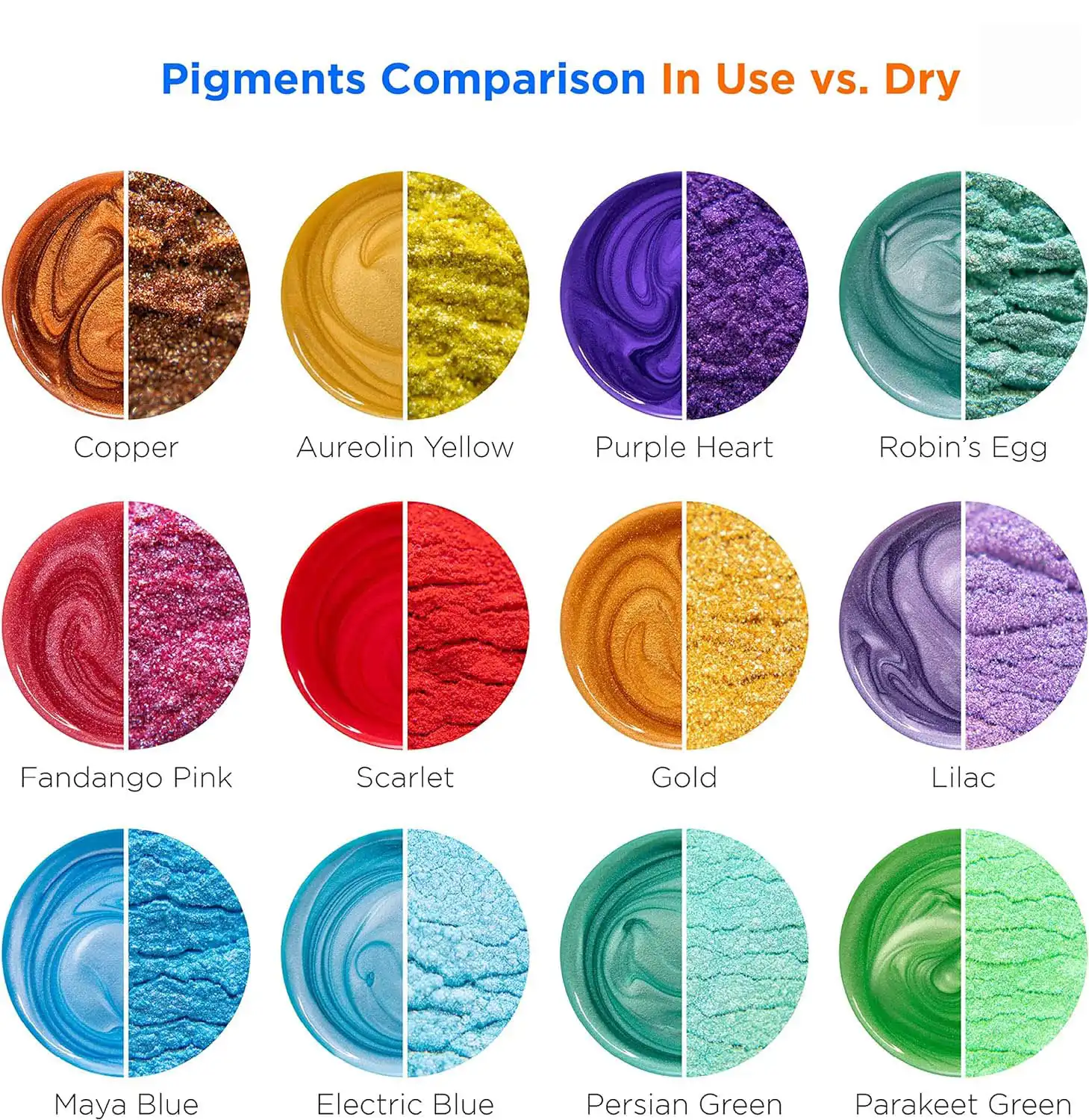is clear epoxy resin waterproof?
2024-09-09 13:51:05
Clear epoxy tar has turned into a famous material in different enterprises, from development to expressions and specialties. It is a great option for many applications due to its durability and adaptability. Nonetheless, one inquiry that frequently emerges is whether clear epoxy sap is really waterproof. In this complete aide, we'll dig into the properties of clear epoxy resin, its waterproof abilities, and its various applications.
Waterproof Properties of Clear Epoxy Resin
Water Resistance vs. Waterproofing
To comprehend the waterproof capacities of clear epoxy tar, it's significant to separate between water opposition and waterproofing. Water opposition alludes to a material's capacity to repulse water somewhat, while waterproofing suggests total impermeability to water. Although clear epoxy resin is highly resistant to water, its waterproof properties can vary based on a number of factors.
Factors Affecting Waterproofing
The waterproof performance of clear epoxy resin depends on various factors:
- Quality of the epoxy: Higher-grade resins often offer superior water resistance
- Proper mixing and application: Incorrect ratios or application techniques can compromise waterproofing
- Surface preparation: Inadequate surface preparation may lead to poor adhesion and water penetration
- Curing conditions: Temperature and humidity during curing can affect the final waterproof properties
- Thickness of the application: Thicker layers generally provide better water protection
Testing Waterproof Properties
To determine the extent of clear epoxy resin's waterproof capabilities, various tests can be conducted:
- Water absorption test: Measures the amount of water absorbed by the cured resin over time
- Hydrostatic pressure test: Evaluates the resin's ability to withstand water pressure
- Weathering tests: Assesses the long-term performance of the resin under various environmental conditions
Applications of Clear Epoxy Resin
Construction and Home Improvement
Clear epoxy resin finds extensive use in construction and home improvement projects due to its durability and aesthetic appeal. Some common applications include:
- Flooring: Creating seamless, glossy floors in residential and commercial spaces
- Countertops: Providing a durable, easy-to-clean surface for kitchens and bathrooms
- Waterproofing: Sealing concrete surfaces, basements, and roofs
- Wood finishing: Enhancing and protecting wooden furniture and structures
Arts and Crafts
The transparency and versatility of clear epoxy resin make it a favorite among artists and crafters. Popular applications in this field include:
- Jewelry making: Creating unique, glossy pendants and accessories
- Resin art: Producing vibrant, three-dimensional artworks
- Tabletop coating: Preserving photographs, memorabilia, or decorative elements under a clear, protective layer
- Mold casting: Fabricating custom figurines, coasters, and other decorative items
Industrial and Marine Applications
The robust nature of clear epoxy resin makes it suitable for various industrial and marine applications:
- Protective coatings: Shielding metal surfaces from corrosion and chemical exposure
- Electrical insulation: Encapsulating electronic components to prevent moisture damage
- Boat building and repair: Constructing and maintaining watercraft hulls and decks
- Composite manufacturing: Reinforcing fiberglass and carbon fiber materials

Best Practices for Achieving Waterproof Results
Surface Preparation
Proper surface preparation is crucial for ensuring the best waterproof performance of clear epoxy resin. This process typically involves:
- Cleaning: Removing dirt, dust, and grease from the surface
- Sanding: Creating a slightly rough texture to improve adhesion
- Priming: Applying a suitable primer to enhance bonding, especially on porous surfaces
- Moisture testing: Ensuring the substrate is sufficiently dry before application
Mixing and Application Techniques
To achieve optimal waterproof results, it's essential to follow proper mixing and application techniques:
- Accurate measurements: Using precise ratios of resin and hardener as specified by the manufacturer
- Thorough mixing: Ensuring complete blending of components to avoid weak spots
- Bubble removal: Employing techniques like heat guns or vacuum chambers to eliminate air bubbles
- Even application: Applying the resin in consistent, level layers to prevent thin spots
- Multiple coats: Applying several thin layers rather than one thick layer for better results
Curing and Post-Curing
Proper curing is essential for achieving the best waterproof properties of clear epoxy resin:
- Temperature control: Maintaining the recommended ambient temperature during curing
- Humidity management: Controlling moisture levels to prevent issues like cloudiness or tackiness
- Curing time: Allowing sufficient time for the resin to fully cure before exposure to water
- Post-curing: Applying heat treatment to enhance the resin's final properties, including water resistance
Maintenance and Long-Term Performance
Cleaning and Care
To maintain the waterproof properties of clear epoxy resin over time, proper care is essential:
- Regular cleaning: Using mild, non-abrasive cleaners to remove dirt and stains
- Avoiding harsh chemicals: Steering clear of strong solvents that may degrade the resin
- Prompt spill cleanup: Wiping up liquids quickly to prevent prolonged exposure
- Soft cleaning tools: Using soft cloths or sponges to avoid scratching the surface
Inspection and Repair
Periodic inspection and timely repairs can help maintain the waterproof integrity of clear epoxy resin:
- Regular checks: Examining the surface for signs of wear, cracks, or delamination
- Touch-ups: Applying additional resin to small areas of damage
- Professional assessment: Consulting experts for large-scale repairs or reapplication
- UV protection: Applying UV-resistant coatings to prevent degradation from sunlight exposure
Longevity and Durability
When properly applied and maintained, clear epoxy resin can provide long-lasting waterproof protection:
- Expected lifespan: Typically ranging from 10 to 20 years, depending on application and conditions
- Environmental factors: Considering the impact of temperature fluctuations, humidity, and UV exposure
- Traffic and use: Assessing wear patterns based on foot traffic or frequency of use
- Reapplication: Planning for periodic reapplication to maintain optimal waterproof performance
Conclusion
Clear epoxy pitch offers noteworthy water-safe properties, going with it a brilliant decision for different applications where security against dampness is vital. It may not be completely waterproof in every situation, but with the right selection, application, and upkeep, it can be very effective at protecting against water. Clear epoxy resin continues to be a popular choice for construction, arts and crafts, and industrial applications due to its versatility, durability, and aesthetic appeal.
Please do not hesitate to contact us at info@jhd-material.com for additional information regarding our high-quality insulating sheets and clear epoxy resin products. Our group of specialists is prepared to help you in tracking down the ideal answer for your particular requirements.
References
1. Smith, J. (2021). "The Science of Epoxy Resins: From Chemistry to Applications." Journal of Polymer Science, 45(3), 278-295.
2. Johnson, A. et al. (2020). "Waterproofing Properties of Various Epoxy Resin Formulations." Materials Research Bulletin, 112, 103-118.
3. Brown, L. (2019). "Clear Epoxy Resin in Modern Construction: Applications and Challenges." Construction and Building Materials, 203, 621-637.
4. Garcia, M. and Lee, S. (2022). "Long-Term Performance of Epoxy Resin Coatings in Marine Environments." Corrosion Science, 185, 109429.
5. Thompson, R. (2018). "The Art of Resin: Techniques and Applications in Contemporary Crafts." Crafts Journal, 32(4), 45-62.
6. Wilson, K. et al. (2023). "Advances in UV-Resistant Epoxy Resin Technologies for Outdoor Applications." Progress in Organic Coatings, 168, 106831.



 拷贝.webp)



